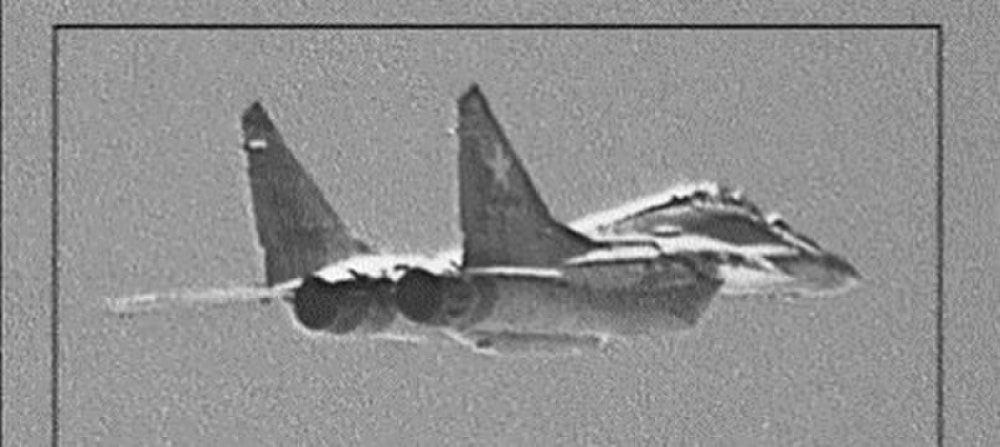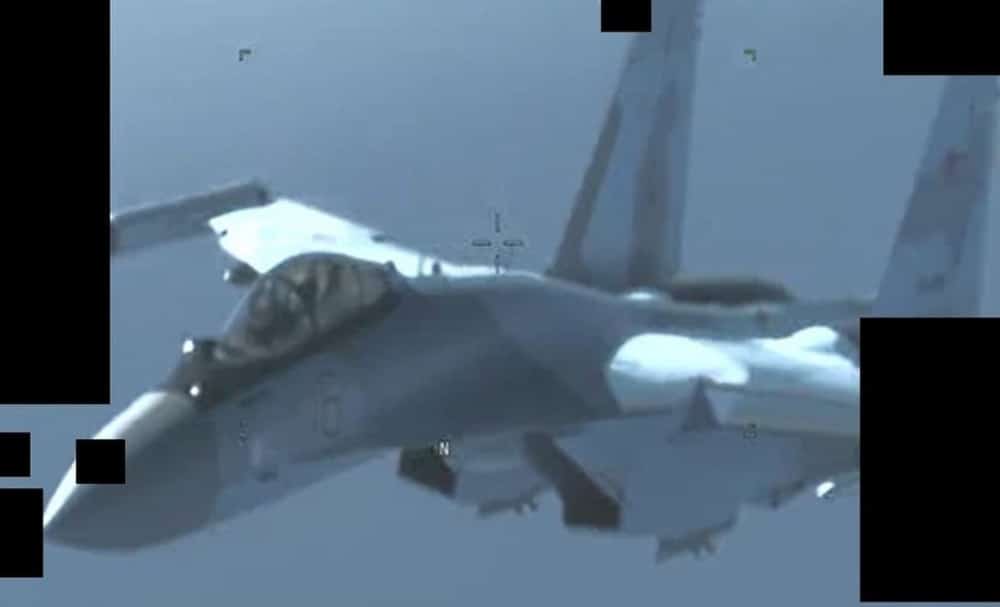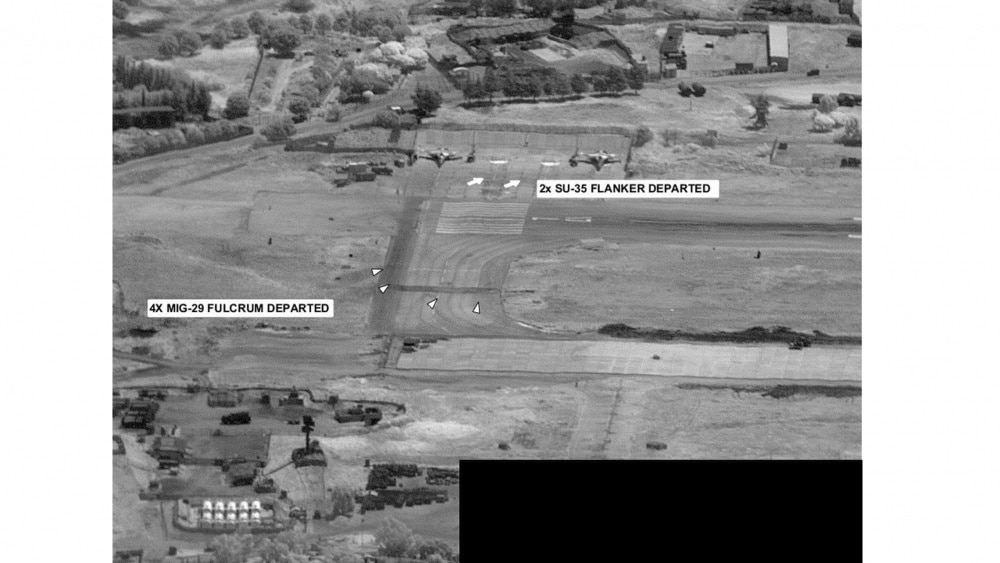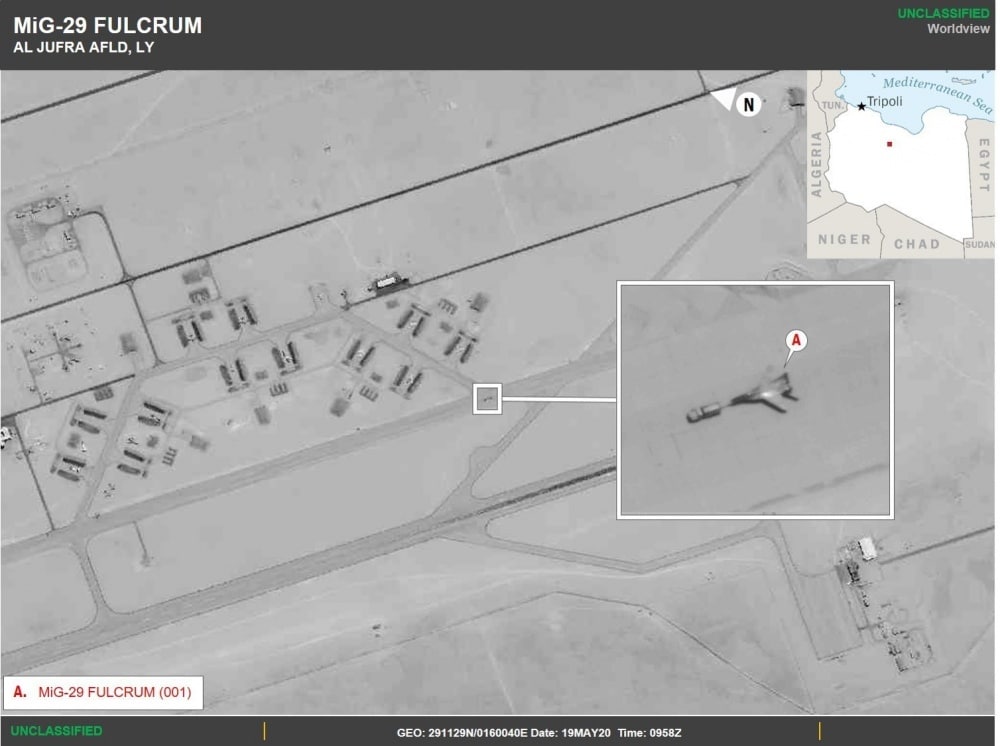This article was originally published by Radio Free Europe/Radio Liberty and is reprinted with permission.
The United States says Moscow has deployed military jets to Libya to provide support for Russian mercenaries helping a local warlord battle the North African country’s internationally recognized government.
The Russian military aircraft flew to Libya via Syria, where they were repainted to disguise their identity, the U.S. Africa Command said in a statement on May 26.
“For too long, Russia has denied the full extent of its involvement in the ongoing Libyan conflict. Well, there is no denying it now. We watched as Russia flew fourth-generation jet fighters to Libya — every step of the way,” said U.S. Army General Stephen Townsend, commander of AFRICOM.

Russian fighter jets were recently deployed to Libya in order to support Russian state-sponsored private military contractors (PMCs) operating on the ground there. The Russian fighter aircraft arrived in Libya, from an airbase in Russia, after transiting Syria where it is assessed they were repainted to camouflage their Russian origin. (U.S. Africa Command/Released)
AFRICOM said the Russian jets had arrived in Libya recently. It did not say how many aircraft were transferred.
Vagner Group, a private military contractor believed to be close to the Kremlin, has been helping Libyan commander Khalifa Haftar’s forces in their fight against the Government of National Accord (GNA). A UN report earlier this month estimated the number of Russian mercenaries at between 800 and 1,200.
Moscow has denied the Russian state is responsible for any deployments.
There was no immediate comment from Russia’s Defense Ministry following the latest U.S. accusations.
But Andrei Krasov, deputy head of the Defense Committee in the lower house of Russia’s parliament, the State Duma, rejected the U.S. claim as “disinformation,” according to the Interfax news agency.
The United States posted 15 photographs of what it said were the Russian jets in Libya.

Russian fighter jets were recently deployed to Libya in order to support Russian state-sponsored private military contractors (PMCs) operating on the ground there. The Russian fighter aircraft arrived in Libya, from an airbase in Russia, after transiting Syria where it is assessed they were repainted to camouflage their Russian origin. (U.S. Africa Command/Released)
Townsend said that neither Haftar’s Libyan National Army (LNA) nor Vagner had the ability to operate and finance the jets without Russian government support.
“Russia is clearly trying to tip the scales in its favor in Libya,” he said.

Russian fighter jets were recently deployed to Libya in order to support Russian state-sponsored private military contractors (PMCs) operating on the ground there. The Russian fighter aircraft arrived in Libya, from an airbase in Russia, after transiting Syria where it is assessed they were repainted to camouflage their Russian origin. (U.S. Africa Command/Released)
Oil-rich Libya has been torn by civil war since a NATO-backed popular uprising ousted and killed the country’s longtime dictator, Muammar Qaddafi, in 2011.
Haftar, who controls the eastern part of the country, is now seeking to capture the capital, Tripoli, and his LNA is battling GNA forces.

Russian fighter jets were recently deployed to Libya in order to support Russian state-sponsored private military contractors (PMCs) operating on the ground there. The Russian fighter aircraft arrived in Libya, from an airbase in Russia, after transiting Syria where it is assessed they were repainted to camouflage their Russian origin. (U.S. Africa Command/Released)
The conflict has drawn in multiple regional actors, with Russia, France, Egypt, Jordan, and the United Arab Emirates backing Haftar’s command.
Turkey, which deployed troops, drones, and Syrian rebel mercenaries to Libya in January, supports the government in Tripoli, alongside Qatar and Italy.
In a phone call with Libyan parliament speaker Aguila Saleh on May 26, Russian Foreign Minister Sergei Lavrov said that “there needs to be a constructive dialogue involving all the Libyan political forces” and “an immediate cease-fire,” according to Russia’s Foreign Ministry.
Haftar and the GNA have held several rounds of peace talks in France, Italy, Russia, and Germany, but they have failed to reach an agreement to end the fighting.
U.S. Air Force General Jeff Harrigian said that if Russia seized bases on Libya’s coast, it could potentially deploy permanent capabilities to deny area access.
“If that day comes, it will create very real security concerns on Europe’s southern flank,” he said.



